- Home
- Kirsty Murray
Eat the Sky, Drink the Ocean Page 4
Eat the Sky, Drink the Ocean Read online
Page 4
I didn’t say anything. I knew that it was because my sister was a girl, and my parents had hoped for a boy. For the people of my village, the birth of a daughter was a curse. Girls were expensive, a burden, not something one wished for.
I thought of my little sister and Dewi each time I went to the shore, and saw the ocean vomit bones onto the beach. Small, fragile bones, picked clean. The bones of birds or fish. Or of something else.
It was my mother who discovered that I had magic, a few months after my eleventh birthday, the same month my menses began.
It was the night of a storm. A peal of thunder had woken her, to find me missing from my pallet. Frightened, she had ventured into the storm to find me in the pasture beyond our cottage.
I was suspended in mid-air. Above me, lightning raced across the sky. Clouds clashed and roared. The rain didn’t touch me. Somehow, impossibly, the drops had coalesced into a shining sphere of water that enshrouded me.
My mother was terrified. ‘Karthini!’ she shrieked. Above the din of the storm and the pounding rain, somehow, I awoke. For an all-too brief moment I saw the skies flash above me, saw the shining nimbus of raindrops around me. Then the skies scattered, the ground rose up to meet me and the sphere of water broke over me.
‘Karthini, you must control it,’ my mother told me later, as I sat shivering and wet after she had hustled me inside. When I didn’t answer, she shook me savagely. I turned and saw tears running fast down her face. ‘Promise me!’
But I recalled the intoxicating feeling of being up there, in mid-air. The sense of time slowing. A tingle in my fingers and toes, a beat in my blood, a warm shiver up my spine. The eerie beauty of flashing skies, and the exhilaration of being dry in the midst of a storm.
‘Why can’t girls do magic?’ I asked. ‘Why not?’
‘They just can’t.’ My mother gripped me fiercely, so tightly that it hurt. ‘Promise me, Karthini – I beg you – that you won’t try.’
I had promised. I could control the magic during the day but nights were another matter. I would dream of riding the moon, flying in the expanse between the stars, and would wake to find myself drifting towards the roof of our small cottage.
So my mother brewed me a special tea that made my dreams dark. A recipe, passed down through generations, that her mother had taught her, to bring about a slumber so thick and heavy that I could no longer succumb to the lure of magic in my sleep.
But it meant I had no dreams.
Three years later my father disappeared. The harvest had been a poor one and had forced him to turn to fishing. The day he went missing, he had glanced at the sky, as usual, before setting sail. It was clear. Not a cloud on the horizon. But an hour later, the Demon Clouds had gathered, mustering close, spitting fire.
He never returned.
A few days later, the ocean spewed up a bolus of bone and wood and sail upon our beach. My mother took ill immediately. Within months she faded and died, and I was left an orphan.
And so I went to live with my uncle and aunt, and earned my keep by watching their two youngest boys, Sigid and Musa, eight and ten years old.
One morning, not long afterwards, I took my cousins with me to gather the snake-fruit from the plants that grew by our cliffs. The youngest, Sigid, pranced around with a toy sword.
‘I’m going to be a soldier!’ he exclaimed, and waved his wooden sword in the air.
I told him to be careful, but he shook his head at me and continued with his play. He slammed his sword onto the branches of a dragon-plant, and a hummingbird darted out and pecked at his face.
Startled, Sigid stumbled backwards, onto the edge of the cliff—
and into thin air.
Musa screamed.
What happened next was so fast, it’s all a blur in my memory. One moment, Sigid was tumbling past the cliffs to the rocks beneath, and the next he was lying on the ground before me, quivering with terror. Musa stared at me with fear and revulsion.
I had used magic to pull Sigid to safety.
And so my turn came too, by the beach.
I wasn’t brave like Dewi. I wept and begged for my life. I pleaded with my aunt and uncle to spare me – after all, hadn’t I saved their son? My aunt wept too, and turned her face away, but my uncle was implacable.
Like Dewi, I was dressed in a sackcloth shift. The Black-smith wrapped steel chains around my wrist and dragged me, crying, across the beach. When I tried to pull back, he tugged, and I tripped, tumbling over the sand, to come to rest sprawled by the water’s edge.
The Headman was waiting there, his whip coiled around one fist. The first two lashes bit into my flesh. I screamed. The third lash drew blood. With the next lash my back was a writhing, red-hot mass of pain.
I broke down. I told them everything they wanted to hear.
They thrust me, as they had thrust Dewi, into a sawn-off barrel that bobbed on the water.
But as they pushed the barrel out to sea, a woman cried out ‘Wait!’
She ran to me. I knew who she was – Satyawati. She already had five children, and the little baby she held in her arms was her sixth, a girl born a few months after her husband died.
She pushed the baby at me.
I shook my head.
‘Please, please take her,’ she cried. ‘Look after her.’
‘No … I can’t—’
Satyawati sobbed, ‘Just take her. Please.’
I tried to turn away, but my hands were bound. Satyawati leaned over and placed the baby in my lap.
‘Her name is Sari,’ she whispered to me.
I thought, as we drifted on the ocean, that Satyawati was mad. Why had she given her daughter to me?
Black clouds clustered close to the horizon. Even if clouds didn’t kill us, hunger and thirst would soon enough. How long could a baby survive without food?
How long would I?
Soon the Demon Clouds came.
My heart started to race. I could feel sweat gather in my armpits, on my palms, down my bleeding, burning back. With an effort, I pushed the pain away and thought about what I had to do.
The stories I had heard described demons living in the clouds. Demons with razor-sharp teeth, and forked tongues, with a hundred terrible blood-red eyes and faces from your most terrible nightmares.
But this was different. There were no faces, no shrieking, laughing demons – just an unending bank of black clouds, menacing and spanning the sky as far as you could see.
I will never forget that night, as long as I live. Green fumes emerged from the clouds. Sari started to cough, and I felt something scratch at the back of my throat.
And then a drop of fire fell from the sky and touched my hand.
It was as though a thousand pieces of glass had smashed through my skin. I screamed out in pain, and the baby began to cry.
I can’t explain what I did at that moment – but it was magic. You’ll never understand it until you do it yourself.
I don’t know where it came from – but I think when your life is in danger, the mind has a strange way of knowing what will help you to survive. It was as if, in the moment before, my mind had been an octopus. I had felt fear, worry, hunger, thirst, pain, a desire to protect Sari, grief – these were the many tentacles of my mind, the many things jostling for my attention.
And then there was a tingle in my fingers and toes, a warm shiver that raced down my spine, and my mind changed shape. From a many-tentacled beast, it turned into a smooth, pure muscle. This muscle consumed everything else – every thought, worry and fear – and turned it into a shield, hard as a diamond.
The rain of fire slid over it, harmlessly, and dripped into the sea.
The edges of our barrel burned and smoked. As the fire struck the sea, it lit the waters below. I could see schools of fish writhing in the water where the scorching rain fell. Green ribbons of flame twisted through the ocean. The carcass of
a bird, charred to a cinder, plunged beneath the surface.
The shield gave me hope and strength. I found the will to twist my hands free. The chains cut and gouged and bloodied my wrists until finally they slipped off. I held Sari tight, in my bleeding hands, while I used everything I had to keep up the invisible shield between us and the Demon Clouds.
But that wasn’t all. As the fire-rain beat on, the ocean rose up to meet the sky. The waves tossed our tiny barrel back and forth, and sheets of water drenched us, again and again, through the night.
I struggled to shelter Sari from both fire and water. I don’t know how long it went on for. It was the longest night of my life, and each minute felt like an hour, each hour like a day. But finally we passed the Demon Clouds. And beyond the clouds, the sky was starting to turn from blue to pink. Dawn was breaking.
It was then that I spotted the ship – a black ship, with black sails, quite unlike any other I had seen before.
I was too weak to raise my hand and signal to it. My voice died in my parched throat. I was scared that the ship would pass us by. Desperate, I tried something that I had only imagined until then.
I screamed at the ship with my mind.
A few minutes later, the vessel turned towards us. Soon enough, it was just a few feet away. A ladder descended, and a sailor climbed down.
I watched him, wary despite my relief. How would these people treat us? Would they, like the Headman and Blacksmith of my village, flog and sentence girls to death for practising magic? Would they take in Sari, or would they cast her out to sea, the way my mother had my sister? Would they despise Sari and me for being girls? Or – though I could not imagine it – would girls here meet even worse fates?
When the sailor reached the bottom of the ladder, he swung around to jump into our barrel. He was a strange-looking man – smaller and more slender than the men at home. I thought that he must be a man from South – perhaps they looked different from us, just as men from our village look different to men from the mountains.
But as he took Sari from my hands to pass her to another man behind him on the ladder, I noticed something strange.
This sailor wasn’t a man. This sailor was a woman.
The ship was called the Pearl. Later, I learnt that there are many such ships on the ocean, sailing between North and South. All these ships have black sails and their crews are made up of women so powerful in magic that no Demon Cloud can stop them. And every few months, each ship returns to Floating Island – an isle in the middle of the ocean.
This was where the Pearl was headed when they found me. As the sailors said, a ship is no place to raise a child – and there were many women on Floating Island who would care for and raise Sari.
How do I describe Floating Island? It is beautiful, with a natural harbour and beaches of white sand. You would never have heard of Floating Island. It’s not on any map that has been made in North or South, and it has never been discovered by a ship crewed by men.
There is a town by the harbour – we call it Shiptown. There are many women here, of all ages. Some fix the ships, others farm fields, while others weave cloth and make goods that our ships trade with smugglers on the coasts of North and South.
Of course, we make things with magic. We have for years, but it is only recently I realised that our magic and these objects could serve another purpose. It came to me one day as I worked on a piece of cloth, woven with magic to shimmer at night. Sari, who at eight years old was eternally curious, watched me work and asked, ‘Karthini, what are you weaving?’
I told her that I was making a piece of cloth that sailors on board ships like the Pearl would trade with smugglers, who would in turn sell it to merchants in the cities. Such a cloth would fetch a great price for a rich merchant’s or nobleman’s daughter. And that is how the cloth that I made might one day be worn by a bride on her wedding day.
‘Like Teacher Suki?’
I paused. Suki was Sari’s teacher, who had come to the island a few years ago. A wealthy trader’s daughter from South, Suki had been on her way to an arranged marriage with her father’s trading partner in North. Her fiancé was two decades older and had already buried three wives. Suki had set sail in one of her father’s vessels. Desperate to avoid the marriage, she had escaped en route in one of the ship’s small boats and had been picked up a few days later by one of our ships.
I nodded. ‘Suki would have worn something like this had she got married.’
Sari frowned. ‘But suppose the girl who wears this wants to run away, like Suki, on the night of her wedding?’
I didn’t have an answer.
‘Couldn’t she come here?’
‘But how would she find this place?’ I countered.
And Sari came up with a surprising answer, an answer that stunned me with its simplicity. ‘Why can’t we tell her?’ She fingered the shimmering pattern on the cloth. ‘Can’t you use your magic to weave a story, like this design, into the cloth?’
And so we began to use magic to weave stories and maps into the things we made, just as, in the past, we had used magic to create tiles that constantly changed colour, a carpet with a sheen like moonlight, or lace with a shimmering pattern. It is one of these things you hold in your hands – it might be piece of cloth, a pattern on a tile, or the embroidery on a wedding veil.
Our magic also works to protect the secret of Floating Island. Only if you are alone, and a woman or a girl, will the story reveal itself to you. If you dream of a different life or if you are in danger – snip off a piece of this cloth, tease out a thread of this carpet, or break off a piece of this tile and carry it with you.
Come to the coast and watch the horizon for a ship with black sails. Be sure that the piece of cloth or thread is with you. When you spot such a ship, wait for when the tide is low. If you can, steal a boat or build a make-shift raft, or – if you are a strong swimmer – swim towards the ship.
Once the piece of cloth or thread that you carry with you touches water, it will send out a signal that only we will hear. And we will come for you.
Weft
Alyssa Brugman
Beauty hurts. Don’t let anyone tell you different. Hair is usually not so bad. It’s the paying part that kills. I was laid out for weeks. My back still hurts from the surgery. I have phantom kidney pain, they tell me. I wonder who has my kidney now? It’s a man, probably, with high blood pressure and diabetes. Maybe my absent kidney hurts me every time he considers eating a cheeseburger?
I’m glad it’s done, though. I’ll spend my credit on ludicrously robust, tousled bed-hair, and then botox, so I never have to look like I’ve had a deep, face-contorting thought. Maybe a tiny brow-lift somewhere in my thirties. Totally new boobs when I turn forty. Not bigger, just back where they were. Laser my rear-end every twelve months after that. Eventually I’ll have to forfeit a cornea to keep that up.
Have you ever noticed that celebrities have universally good hair? Even when the paparazzi catch them on the street with no make-up on, buying takeaway cappuccinos and they are looking all hunted and irritated and fraught? It might be stuffed under a baseball cap, and scruffy, but it’s still long and thick, and not endsy. Of course, they have proper money to spend on it. They don’t have to apply for credit the way that we normal people do. But still …
My hair is endsy and thin. When it’s clean it has a speed hump in the middle, as if I have been wearing it in a pony- tail. And my bed-hair isn’t tousled and sexy. It clings to my neck, seaweed-style, as though I’m recovering from a near-drowning incident.
I know you’re thinking, It’s just hair. But hair is a big deal. Being a person with shocking hair, I’ve spent quite a long time pondering it, and I have a theory.
Here’s what I think – attractiveness in most species has to do with whether you’re going to be a good breeder, right? So when a guy looks at an hourglass-shaped girl, the caveman part of his brain is going, My,
those broad hips will readily pass a giant infant cranium. Those hefty bosoms will provide abundant sustenance to my sons! I will mate with her!
And hair is a sign that you’re a good breeder too. When hair is glossy and thick and long, it’s like a record growing out of your head of how healthy you have been over the last few years. It’s a big flag saying that you’ve got robust immune function. Or, on the other hand, your crap hair says that you’re sickly and weak, and while you might pop out a little feeble one, you’re going to be a burden.
I’m not talking about the big sensible part of your brain that says, No, no, I seek a partner who is my intellectual equal, who will share proportionally in the housework. I’m as guilty as the next human of clocking a colossal set of lattisimus dorsi and thinking, just in that first millisecond, in the cavegirl part of my brain, Drool, those lats are going to catch and carry home a substantial beast that will provide plenteous protein during my child-bearing. I will make him aware of the broadness of my pelvis right this minute. I mean, who doesn’t? Those people are liars! Or they just are not in touch with their cavepeople brains.
How is it, then, that celebrities have universally long, glossy hair when, as a sample population, they have a higher than average chance of having an (insert illegal substance here) habit? Addictions are not generally consistent with bristling good health.
I have found out the secret. They wear another lady’s hair. Yes, that’s right!
Anyone can do it, if you have money or credit. Every normal person has to apply for credit eventually, if you want to look any good. So I applied. I decided on a kidney, because I’ve got another one, right? They were able to book in my nephrectomy straight away, but the booking at the salon took ages.
Finally I’m in the specialist salon. They do weaves, braids or dreads, injectables and fillers too, while you wait.

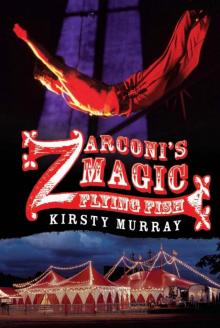 Zarconi’s Magic Flying Fish
Zarconi’s Magic Flying Fish Bridie's Fire
Bridie's Fire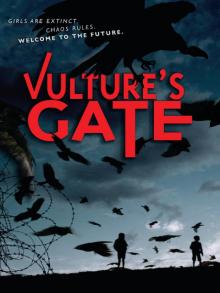 Vulture's Gate
Vulture's Gate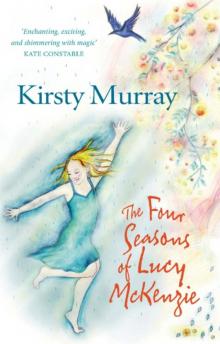 The Four Seasons of Lucy McKenzie
The Four Seasons of Lucy McKenzie A Prayer for Blue Delaney
A Prayer for Blue Delaney The Year It All Ended
The Year It All Ended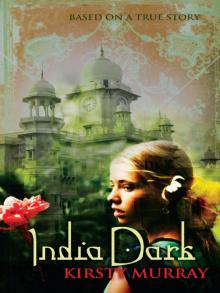 India Dark
India Dark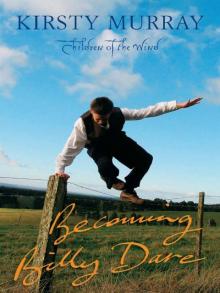 Becoming Billy Dare
Becoming Billy Dare The Secret Life of Maeve Lee Kwong
The Secret Life of Maeve Lee Kwong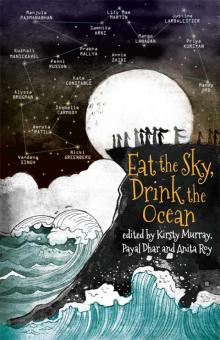 Eat the Sky, Drink the Ocean
Eat the Sky, Drink the Ocean